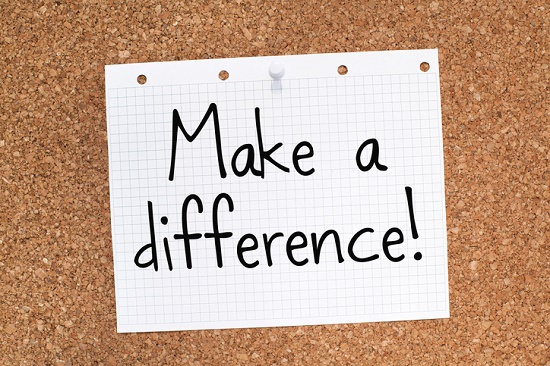
If you presently use hearing aids, you’ve already overcome the odds.
In the US, around 48 million individuals have hearing loss, of which 28.8 million could benefit from the use of hearing aids.
Unfortunately, of those age 70 and older, only 30 percent of those who could benefit from hearing aids actually use them. For those age 20 to 69, it’s only 16 percent.
That’s millions of Americans that are missing out on the advantages of healthier hearing—advantages you understand first-hand if you use hearing aids yourself or know someone who does.
So what can you do to enhance awareness about the positive effects of hearing aids and the enhancements to the quality of life they provide?
Here are ten ways to become an advocate for hearing health.
1. Talk about hearing loss on social media
Social media is an easy and efficient way to spread the message about the positive effects of better hearing. Tell people about how hearing aids work, and how they’ve personally enhanced your life or the life of someone you know.
While people are generally skeptical of advertising, they’ll always be receptive to personal stories.
2. Volunteer to help those in need
Participate in a local activity like the Hearing Loss Association of America’s Walk4Hearing event, or plan your own to increase awareness or funds for hearing loss.
Get in touch with your local hearing loss chapter and find ways you can assist in the community. Visit the Hearing Loss Association of America to find a local chapter.
3. Donate your old hearing aids
If you’re set to upgrade your hearing aids to a newer model, think about donating your old hearing aids to a local organization or hearing clinic.
Your donated hearing aids can be reconditioned and provided to those who couldn’t otherwise pay for them.
4. Contribute to hearing health organizations
Consider contributing to an organization that supports the deaf and hard-of-hearing community, such as the Hearing Health Foundation, Hearing Charities of America, or a local organization.
These establishments use the donations to fund research, to deliver education and support, and to supply financial help to those who can’t afford hearing aids or cochlear implants.
5. Start a petition
Most states do not require health insurance plans to cover the expense of hearing aids. Start a petition to present to your elected officials, asking them to recognize hearing health as a vital part of general health.
6. Help someone with hearing loss
Many people accept as true the misconception that hearing aids don’t work, or they may even be denying they have a problem in the first place.
Help people to accept their hearing loss and understand that the technical advances in hearing aids can help them recover their hearing. Help guide them through the process of finding a hearing care provider, getting a hearing test, and adjusting to their hearing aids.
7. Advocate for the community
Hearing loop systems supply sound straight from the source to the individual’s hearing aids. These can be found in churches, movie theaters, auditoriums, and universities.
Advocate for the inclusion of hearing loop systems in the most popular community locations.
8. Wear hearing protection
Among the most effective ways to advocate for hearing health is by being a hearing health role model. That means safeguarding your hearing at loud settings, like at rock concerts or sporting events, with custom hearing protection.
9. Have your hearing tested
If you don’t currently use hearing aids, display your commitment to hearing health by getting your hearing professionally tested. Share the process on social media and suggests that others do the same.
10. Proudly wear your hearing aids
Last, you can do your part to end the stigma of hearing loss by proudly wearing your hearing aids. Hearing loss is very common, much like vision loss, and wearing hearing aids should be as common and accepted as wearing a pair of prescription glasses.
